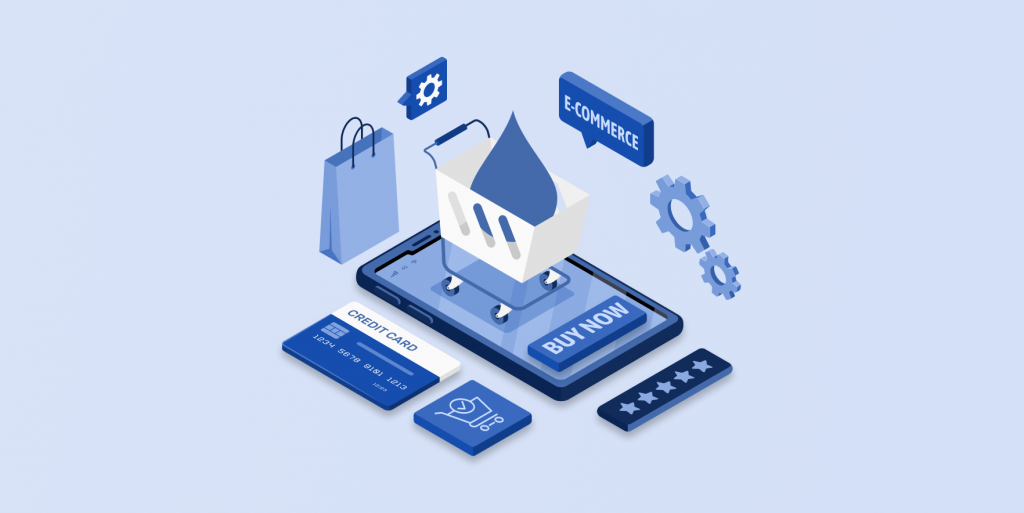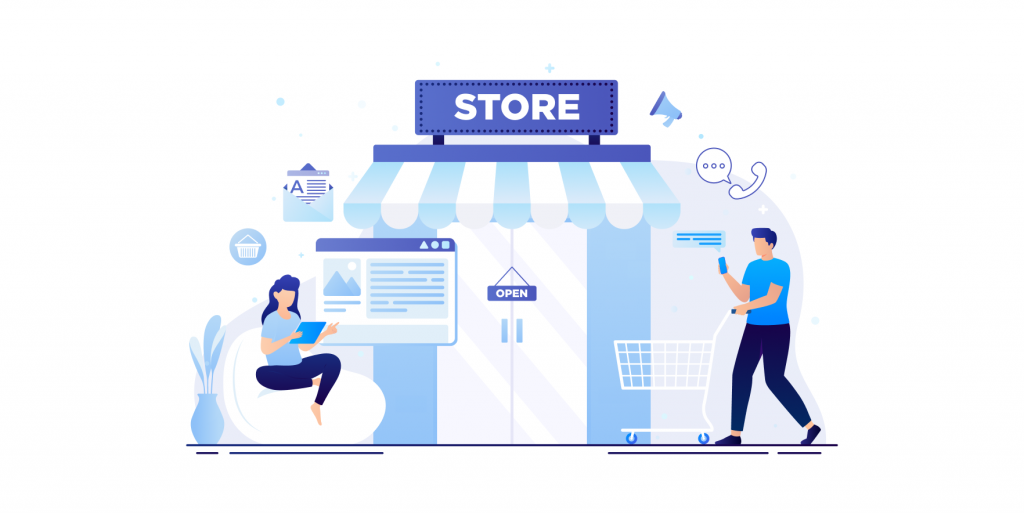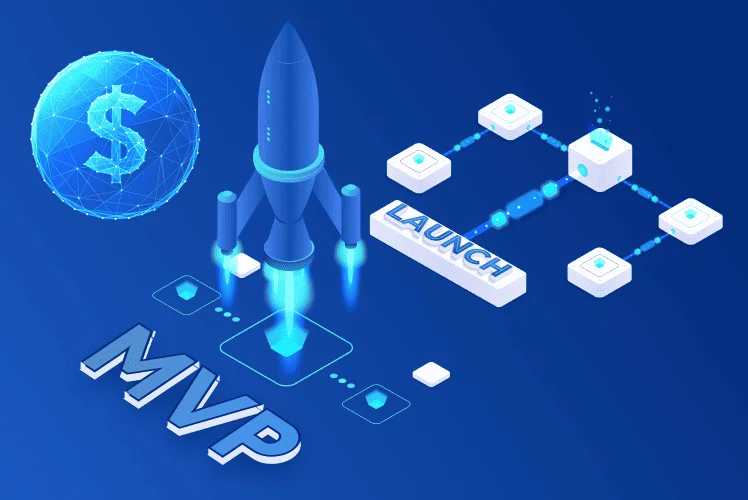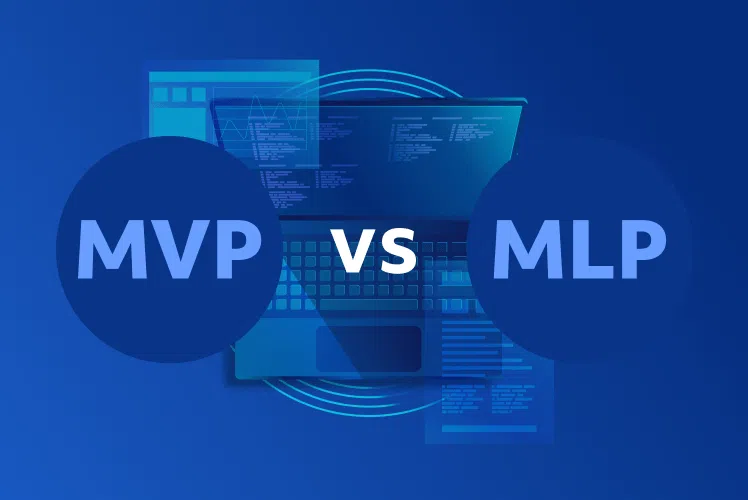Though Drupal was first introduced in 2001, it still remains relevant today and powers thousands of websites, including online stores. Its users love its built-in features (views, translations, simple admin views, etc.) and claim to have successful and busy ecommerce sites up and running on this CMS.
But considering high competition in the ecommerce industry, some may ask whether Drupal ecommerce development is still relevant in 2024? In short, the answer is: yes. Now, let’s look at Drupal ecommerce in more detail.

What is Drupal?
As the official website defines it, Drupal is a free and open-source CMS, suitable for both simple websites and complex web apps. Due to its open-source nature, the platform provides developers with a great level of flexibility and with vast customization options – though you need to be savvy with PHP to effectively set up and configure Drupal.
The most prominent features to pay attention to include:
- Queries creation: grants great control over content retrieval, thus allowing more customized web apps;
- Rich toolkit: users instantly get access to an array of features, like easy content management and menu handling;
- Notification system: a very streamlined and effective system of real-time notifications to keep all system users instantly updated;
- Modular architecture: enables seamless integration of needed components and provides great flexibility in managing existing functionality;
- Mobile-first: since version 8, Drupal strictly follows the mobile-first approach, meaning, its themes are responsive from the start;
- Multilingual support: includes built-in translations for the admin interface and support for multiple languages.
What is Drupal Commerce?
So, Drupal is a highly powerful and effective tool for website development – now let’s focus on its ecommerce aspect. For successful online store development, you’ll need Drupal Commerce – its native ecommerce module. It features all core ecommerce functionality, such as creation of product types, dynamic product pages, various order types, order management, etc.
If we compare Drupal Commerce with Magento, for example, both platforms are responsive, display a high level of performance, allow a variety of integrations, and have strong SEO capabilities. Hence, Drupal is a reliable choice for online stores, especially the ones that require extensive customization and full control over their functionality.
Benefits of Drupal for ecommerce
There are many ecommerce platforms available in the market, and each boasts to be the best option. So why consider Drupal for your online store development? Below, we list the biggest benefits of this solution over its competitors.
Headless commerce
Headless ecommerce is a growing trend, so it’s important that your platform of choice supports this architecture. The good news is that Drupal allows going headless and reaping all benefits of this approach.
Before diving deeper into this topic, let’s quickly recap what exactly headless commerce is and what makes it so attractive for business owners. Headless commerce implies that there is a platform that serves as a backend only and connects to other platforms (frontend) via APIs. This approach allows incredible flexibility in terms of customizing your frontend, since you can change it however you want without implementing changes to the backend. And also, you can add as many touchpoints and channels as needed, while having only one platform to support them all.
Now, back to Drupal. It allows plugging in various ecommerce integrations (the frontend of your store), with BigCommerce probably being the most popular one. In this way, Drupal serves as a backend and for the frontend, you can choose whatever suits your needs the best.
Scalability
Growth is a natural state of any successful ecommerce store, and therefore, it is important that your ecommerce platform of choice supports this growth. In other words, it is crucial that the platform is scalable, and Drupal meets this requirement.
There are two core features that make this platform so scalable and effective: open-source nature and API-first initiative. Combined, they allow you to add all necessary resources and expand your store as much as you need it. At the same time, Drupal is designed in such a way that the resources in use are kept at a minimum, thus saving your budget and contributing to better performance.
Security
Even the smallest security vulnerability can cost a company millions of dollars, so obviously, nobody wants that. And considering that an average ecommerce site constantly processes sensitive information (i.e., credit card numbers, addresses, etc.), it is vital to safeguard it on all possible levels. One of the core levels of protection of an online store is the built-in security of the platform. So, what does Drupal have to offer?
First, it follows secure coding standards, meaning that the code is written in accordance with established security practices. And to ensure that everyone who works with Drupal follow these standards, it has secure coding guidelines, available on its official website. These guidelines include coding standards for:
- PHP
- Accessibility
- CSS
- JavaScript
- SQL
- Twig coding standards
- Drupal Markup Style Guide
- Spelling
- YAML configuration files
- Composer package naming conventions
Second, Drupal has a dedicated Security Team, whose main responsibility is monitoring Drupal software to ensure it meets the OWASP guidelines and standards. As well, the team is responsible for resolving detected security issues and for providing assistance with security-related questions. As you can see, Drupal takes its security seriously and also provides out-of-box security features that help prevent the majority of the most common cyber attacks as listed by OWASP.
Full control over the platform
As already mentioned, Drupal is an open-source solution, which means you can configure and customize the platform exactly as needed. While it’s not necessary to go through all the hassle of manual customization, this feature can be vital for businesses with unique requirements for their software.
Also, such control and the open-source nature of the platform mean that you can extend the functionality of your ecommerce store at any time. And considering that there are more than 40,000 various modules available, you can personalize the Drupal ecommerce store as much as your business needs!
Note though that such extensive customization calls for experienced and skilled Drupal ecommerce developers, proficient in PHP. So before setting up your store, you need to assemble a Drupal development team first.
Omnichannel marketing and content delivery
If you are familiar with Drupal, you might have heard about its API-first initiative. If that’s the first time you learn about it, we’ll briefly explain.

The API-first approach decouples Drupal’s backend from the frontend and thus, grants great freedom and flexibility in terms of customizing the frontend part and adapting it for various devices and platforms. In this way, you can store all your content in the Drupal’s backend repository but configure it however you like to use various sales channels and create an omnichannel experience for your shoppers.
This approach brings several big benefits:
- Increased reach and expansion of the audience
- Increased user engagement due to a bigger number of points of interaction
- Greater flexibility and creativity in terms of content creation and optimization
- Automated content delivery
Experience-led commerce
User experience is a highly valuable factor that impacts the conversion rate and engagement. If customers receives smooth and memorable experiences, chances are high that they will likely return to the store and shop from you. So, what does Drupal offer in terms of delivering an excellent user experience?
Since Drupal is first and foremost a content platform, it provides an array of solutions to customize every bit of content and create a truly unique user flow. In terms of ecommerce, the logic remains the same: your products can be created the same as any other content type and thus, you are in full control of how exactly your customers interact with the store. This approach enables content-driven ecommerce experiences, which, in turn, are a big competitive advantage.
Community and support
One more important reason why businesses choose Drupal for their ecommerce store setup is the size of the Drupal community and all the support that it provides. Since Drupal is quite old (no negative meaning here), its community is naturally big, as it kept growing since 2001. It now counts approximately 45,000 developers, and the number keeps growing. And if you are not convinced yet, you can check out the official Drupal website, where the “Community” section features the “Come for the Software, Stay for the Community” slogan.
You might ask, though: why does a big community matter so much? The thing is, the bigger the community, the higher the chances that you will be able to get help with any Drupal-related issue, since somebody has most probably encountered this issue before. In addition, the Drupal community also keeps an eye on the platform’s security, ensuring that any detected vulnerabilities are quickly patched.
How to find reliable Drupal ecommerce developers
Since Drupal is a complex and feature-rich platform that requires setup and configuration from scratch, you will obviously need help from experienced and skilled Drupal developers. The big question is where do you find such experts?
Search marketplaces for business services
The first thing that many business owners do when looking for Drupal development services is going to such marketplaces as Clutch. This website is well-known for listing top development companies across various industries, so you can easily find experts for your specific niche. As well, Clutch shows client ratings, reviews, and testimonials for each Drupal ecommerce agency, which is also highly helpful in finding a reliable software development partner. Just select the needed services from its extensive list or simply input “Drupal” in the search bar and see a full list of trusted and experienced developers.
Ask your network
One more common way to find Drupal developers is to actually ask your network for recommendations. By doing so, you will be able to learn from the first-hands experience and ask about potential challenges and bottlenecks (if any). Usually, network recommendations are the number one factor that impacts one’s decision on collaborating with a Drupal ecommerce company, so do not overlook it.
Reach out to companies
There are many reliable Drupal Commerce development companies out there, so how do you choose the one? Once you have a list of the companies that you consider partnering up with, you can reach out to them and request a consultation or an interview. Such one-to-one interactions help understand the company’s working attitude and culture, as well as their level of expertise. Also, it’s a good idea to ask whether the company has worked with similar projects before and what exact tech stack it used. This information will give you a solid idea about the way the company operates and about its strengths and weaknesses.
Hire a Professional Drupal Developer
Best practices for Drupal Commerce development
The process of setting up and customizing a Drupal ecommerce website is not too different from the setup of any other ecommerce store in terms of adding extra features, selecting a suitable theme, or working on SEO. However, there are several best practices that can significantly simplify and speed up the whole process – see them below.
Partner with trusted developers
Though seemingly obvious, this advice is really valid and is sometimes overlooked by business owners. The thing is, high quality of your software and its timely testing means fewer (or even zero) issues and errors after the store launch and, as a result, reduced costs related to debugging and maintenance. Thus, it is recommended to invest in Drupal development services in the beginning to minimize the chance of costly errors in the future.
Consider migrating to Drupal 9 or 10
If you are familiar with Drupal, you probably know that Drupal 8 has reached its end of life in 2021, meaning that the support for this version is officially over. As for Drupal 7, its support ends in January 2025, which is also pretty soon. Hence, now might be the best time to consider migration to Drupal 9 or 10.
The biggest reason for that is the platform’s security. The ongoing support for a certain version of software means that there are regular releases of security patches and updates. This significantly reduces the chances of a vulnerability slipping in and thus, secures the sensitive data that your store processes.
Note though that store migration is an intricate process and has to be handled by the professionals to ensure data integrity and uninterrupted performance.
Don’t forget about backups
Taking into account the rise of cyberattacks and the amount and nature of sensitive data that ecommerce stores contain, it is vital to back up your data to ensure its safety and integrity. Data backups mean that you create a copy of all your data and store it either in the cloud or on a physical carrier (which is way more secure, btw). This data then can easily be retrieved in case something happens or there is a risk of losing the data.
The most common scenarios for creating data backups include:
- Editing or modification of the source code: even the smallest mistake can lead to major consequences, so it’s better to have a backup just in case;
- Store migration: since the process is complex, the chances of losing even a bit of the data become quite high;
- Installation of third-party apps and plugins: due to this software being external, the cyber risks are therefore growing.
Plan the store setup in advance
Drupal offers business owners a plethora of opportunities to create a truly unique and customer-centric store. However, it is also easy to over-complicate the store and, hence, ruin its performance or compromise security.
In order not to get caught up in this complexity, we highly recommend planning your store setup in advance. This includes prioritizing the features, planning all needed integrations, and thinking about design. The more you plan beforehand, the easier (and cheaper!) it will be.
Set up the environment for integrations
An average ecommerce store has dozens of integrations, with payment systems being the most popular ones. However, you can’t just select a third-party tool and plug it in. First, you need to prepare the environment, meaning, you need to install the needed software and hardware components, double-check your security settings, and ensure that the performance of the store will not be disrupted. After thorough testing, the integration will be validated, and you will be ready to use it.
Is Drupal Commerce good?
We’ve talked about what Drupal Commerce is and how to make the best of it – but is it really that good, compared to other ecommerce platforms?
There is no definite answer to that, since each ecommerce platform is suitable for different use cases. So if we talk about Drupal, let’s recap the strengths and weaknesses it has.
Drupal pros:
- An option to reuse content for different pages
- 46,000+ modules
- 250 themes
- Rich and content-centric functionality
- Advanced customization
- Open-source nature
- Great and supportive community
Drupal cons:
- Steep learning curve;
- Requires tech skills and knowledge;
- Complex and lengthy development process
- Lack of free or cheap hosting options.
To sum up, Drupal Commerce is a solid option for those who prioritize content and omnichannel delivery and want a highly customizable solution that can be configured at any time. While Drupal may not be the best choice for small businesses or startups, it’s definitely worth considering for medium-sized and big businesses that have enough resources to invest into Drupal ecommerce development.



Comments